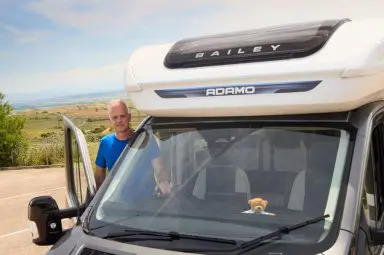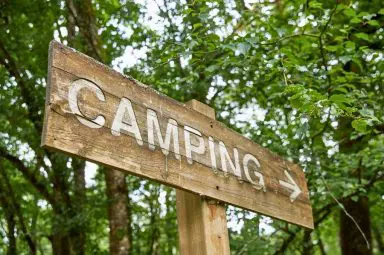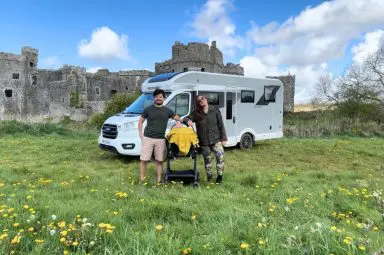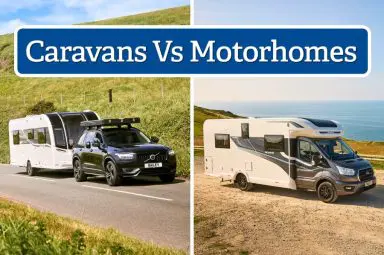Are EV caravans the key to unlocking the market to EV car owners?
This test feature generated a huge amount of public interest with strong views both for and against towing with an EV in future. One of the most common concerns amongst existing caravanners was the low towing limits of existing EVs and, as a result, the limited choice of caravans available for EV car owners. Lighter, and more affordable, than a conventionally specified vehicles are EV caravans, therefore the answer to making towing with an EV vehicle more of a reality for more people?
Ten years ago Bailey looked into this question as part of a wider Knowledge Transfer Partnership study in conjunction with the University of Bath into reducing the carbon footprint of the company’s operations. The results of the research culminated in the development of the all-electric Orion Evo-4 concept caravan, a vehicle which may well now have come of age in terms of its Eco credentials.
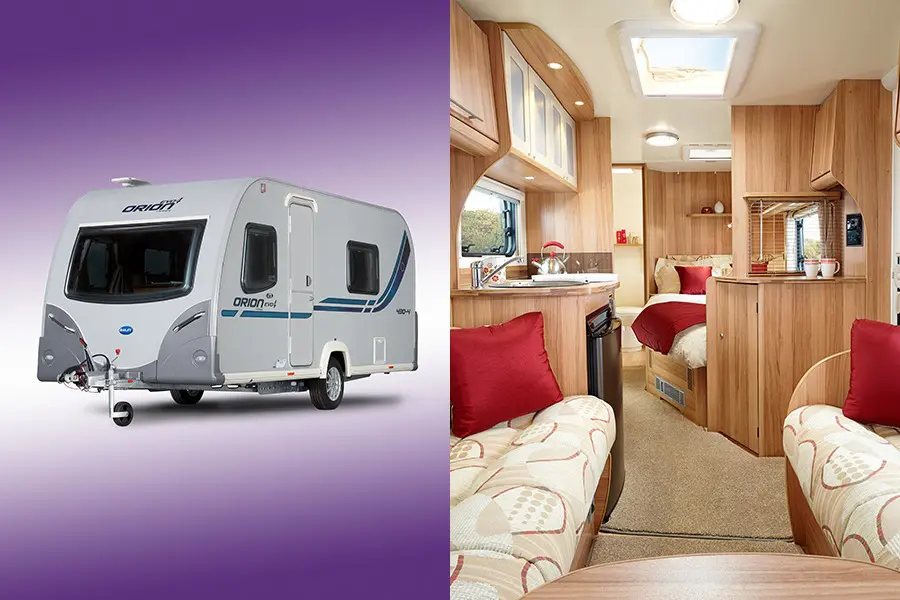
This project began with a ‘cradle to grave’ lifecycle assessment on a caravan to determine the environmental impact of each phase of a vehicle’s development.
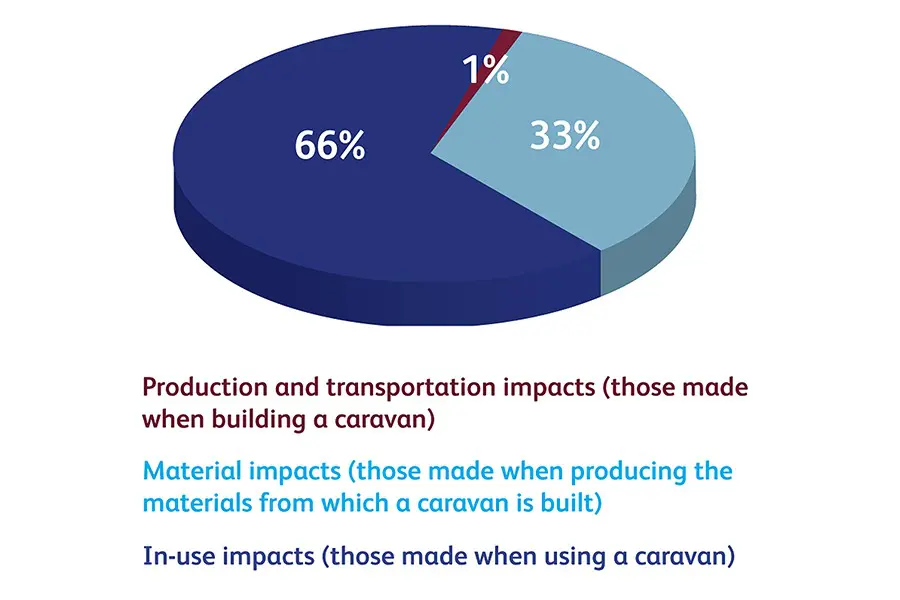
Very quickly it became clear that the most significant impact came from when the caravan was actually in use. The study showed that of the in-use impacts 98% can actually be accounted for by the energy required to tow a caravan. This in turn leads to a 37% increase in fuel consumption of the tow vehicle when compared to driving solo. Clearly therefore any new product design should concentrate on this area, looking at vehicle weight and aerodynamics, if we are to look to make our caravans more environmentally friendly.
Aerodynamics
All Bailey models feature a unique curved rear profile which has been incorporated into the design to improve the aerodynamics of the vehicle. A well designed aerodynamic object ensures that the air flow has minimal disturbance over it by allowing the air to remain attached to the outer surface for as long as possible – which means that the design of the rear of the object is normally more critical than the design of the front. The Orion Evo-4’s more streamlined, curved rear profile therefore ensures that the air is attached to the surface longer thus reducing the overall drag on the caravan which in turn improves the fuel efficiency of the tow vehicle.
In-house testing conducted by Bailey indicated that, when compared to a conventional caravan of equal size and weight, towing the Orion Evo-4 resulted in an improved fuel efficiency of around 8% roughly equating to an improvement of 2 miles per gallon (using a standard family estate car).
Weight Reduction
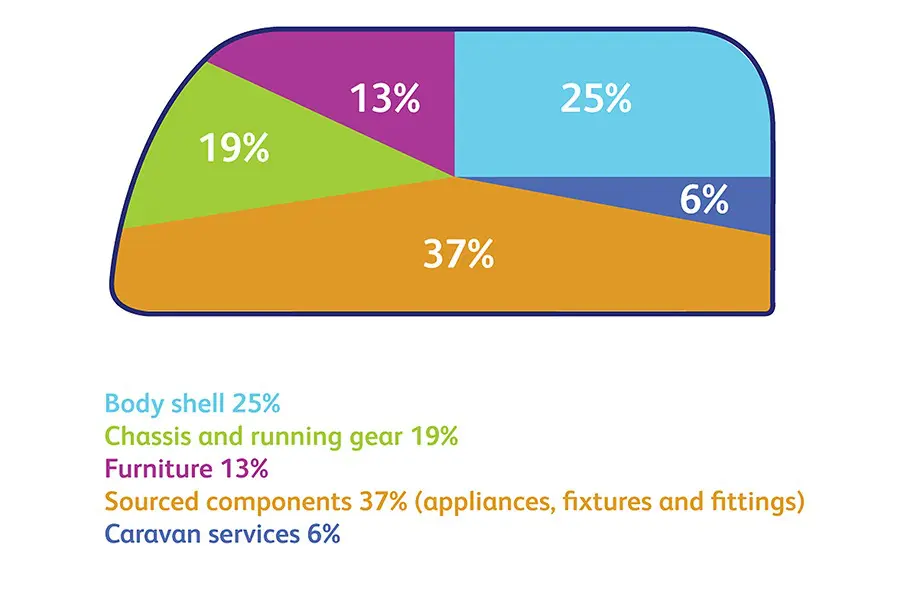
Bailey chose to focus on reducing the weight of the interior components as altering the body shell and chassis could potentially compromise the integrity of the caravan. In doing so the company was careful not to achieve this by removing key elements of the specification as experience has shown that this would reduce the desirability and saleability of the finished product.
Instead, for the answer, Bailey considered how people actually use their caravans, particularly by looking at their preferred choice of power source. With only 8.5% of respondents in the Bailey survey at the time claiming they regularly use the 12v battery as their primary power source this became an obvious avenue to explore.
Consequently in order to tackle this issue, with the exception of the inclusion of a 3-burner gas hob in the kitchen, Bailey look to develop it’s first-ever solely 230v powered vehicle. Converting a vehicle from a multi-source to a single-source does have a significant impact on both the weight and cost of the product through the simplification of the sourced components and caravan services as well as the modification of the furniture. Examples of how this was done in the Evo-4 include:
- Replacement of the separate microwave oven and Thetford Duplex oven and grill with a Daewoo Combi-Microwave
- Replacement of the Thetford 3-burner gas hob with a 2-burner gas hob and a single electric hotplate unit (provision for the gas burner was made through the addition of a small locker positioned in the centre of the caravan to further enhance vehicle stability and reduce nose weight)
- Replacement of the dual source gas and electric refrigerator with an electric only version
- Replacement of the dual source gas and electric Truma space heater with an electric only plinth version
- Replacement of the dual source gas and electric Truma water heater with a Truma electric only version
- Replacement of the battery box with simple mains plug in socket
- Simplification of caravan electrical wiring and gas plumbing systems
- Modification of the caravan furniture
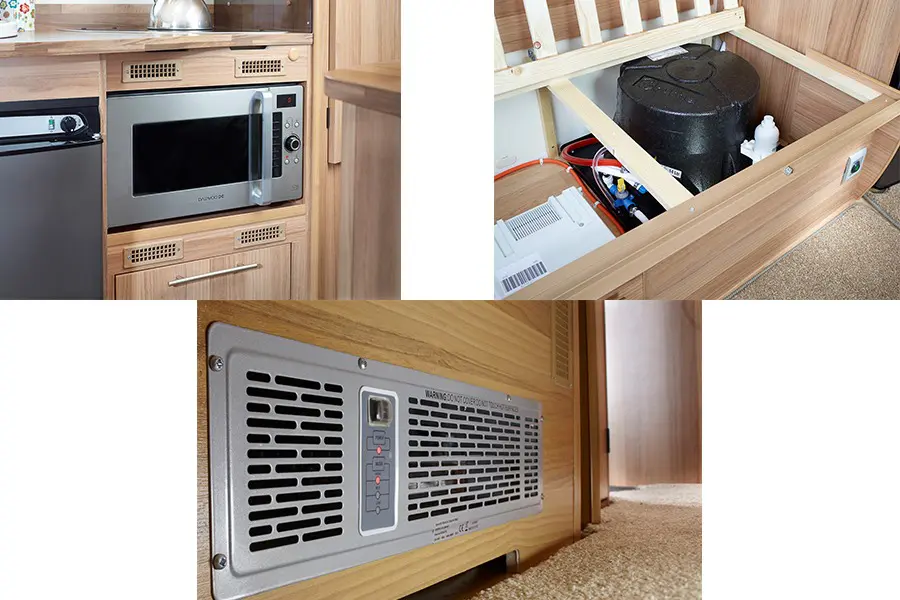
The resulting Orion Evo-4 was identical to the original Orion 430-4 model in terms of both size and layout and yet it weighed over a 100kgs less. This is not only good for the environment in terms of reducing vehicle emissions but also good for potential buyers as the simplification of the caravan services and appliances also meant that the Orion Evo-4 was also approximately £1,000 less expensive to build.
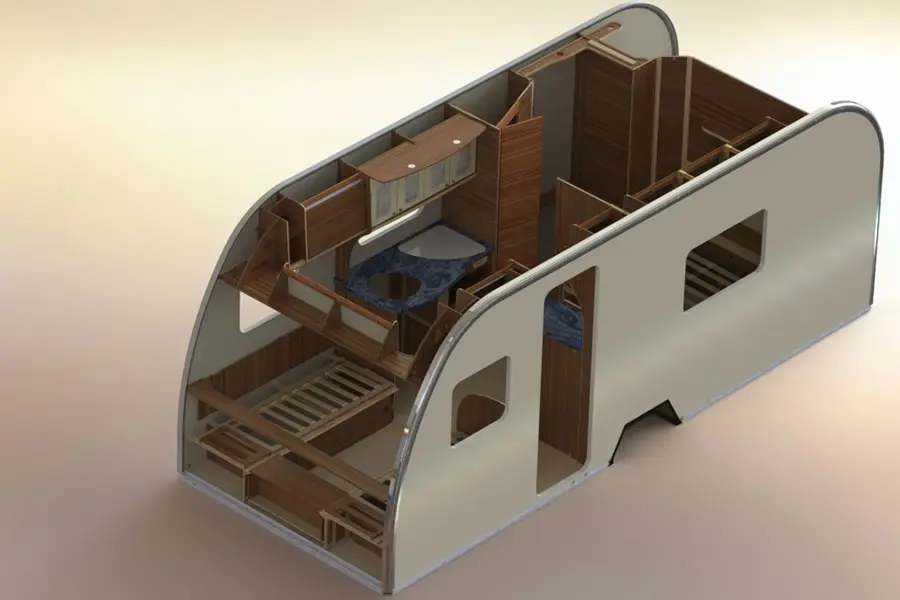
This study was undertaken ten years ago and was perhaps ahead of its time in terms of its thinking. However a decade later attitudes are hardening and we are all now far more aware of the need to reduce our carbon footprint in order to preserve the planet for future generations. Consequently is now the time to reconsider a single source caravan once again? Let us know your thoughts…
Source of all data is “Improving the Effectiveness of Introductory Eco-design Activities within Industry through the Development of an Introductory Eco-design Process” thesis by Molly Buckingham, University of Bath (October 2015).
Latest news & events
See all news & events2025 Display Sale - July Offers at Newport Caravans
NEWPORT CARAVANS, KINGS PARADE, NEWPORT
Grantham's Midlands Caravan & Motorhome Clearance Show 2025
SPITTLEGATE LEVEL
GRANTHAM
